Crawfordville, GA |
What started off as just a way to make extra money while in college, has turned into a passion for Tucker and Emily West, a young farming couple that got married in 2020 and decided to turn their dream into a reality with Liberty Farms Livestock – a sheep operation just outside of Augusta that’s dedicated to providing great, quality lamb to their customers.
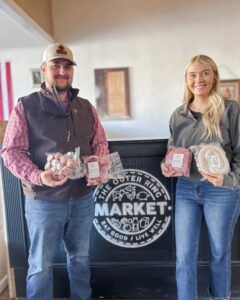
“We actually run a Katahdin ewe base, which are one of the most hardy types of sheep, and they’re real popular here in the Southeast. They’re resilient, they’re tough in environment, they’re great mommas, got great maternal instincts, adaptability is fantastic on them. So, we really try to keep a focus on that katahdin ewe base and then we breed with a white dorper. That way we get that carcass quality and that yield back out of the lambs. The dorper breed is known for their meatiness, their rail weights, and their yield percentages coming off carcass. So, we’ve been able to kind of narrow that down to where we want it to be,” says Tucker West, Owner of Liberty Farms Livestock.
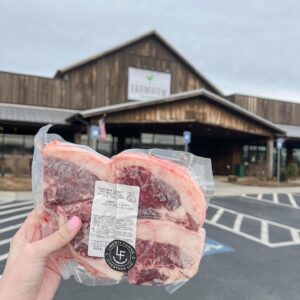
In the last couple of years, business has exploded for them, as they’ve managed to tap into farmers markets, grocery stores, and even restaurants, which according to West, has been nothing short of a blessing as their demand continues to exceed their expectations.
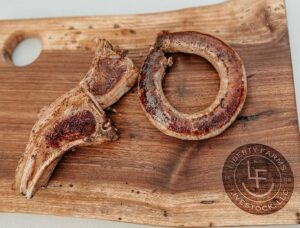
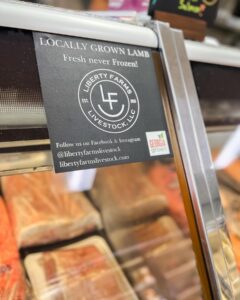
“That’s kind of caught us by surprise. We thought we would deal with more ethnic groups in those kind of markets, but we’ve actually haven’t been able to tap into those just because we’re having trouble meeting the demand of the regular markets, but we sell a lot to independently owned grocery stores and markets. We sell a lot to that and we have a farmers market over on lake Oconee that we visit from May through December and we’re able to sell a lot straight to consumers that way. We’ve also built a great relationship with some restaurants in the state and we’ve been able to work with Cam Floyd a good bit. Just being able to build those relationships has been the biggest key to getting our product out there,” says West
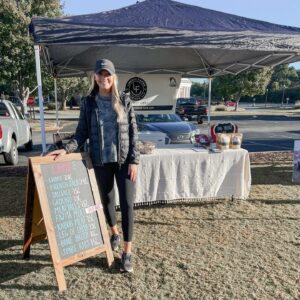
As for the future, West says they want to continue to see their operation grow, one that is sustainable for them and the family they’re currently expanding, all while also still striving for that great quality product that speaks for itself.
“The most important thing for us now that we’re expecting our first child in July is making this operation generational. How can we continue to grow and make it profitable off the land that we have to where my kids can come back and still do what we do here, whether it’s sheep, cows, the chicken houses, whatever the case may be; having an operation where they can come back and still continue this generational farm, that’s probably the most important. Second is quality; at the end of the day, business is great and volume is great, but I want to make sure that we’re putting out the best quality product that we possibly can and that chefs, individuals, customers at restaurants, or people at the farmer’s market or at the retail locations, when they buy our product, that is the best piece of lamb meat they’ve ever had,” says West.
By: John Holcomb
